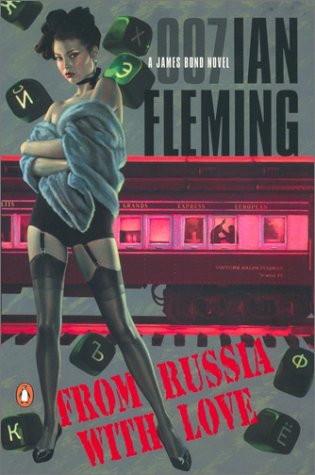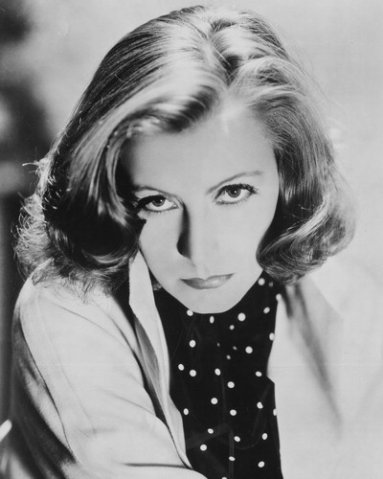|
The Beautiful Lure - Ian Fleming's From Russia With Love

'Every major foreign government has a file on James Bond, British
secret agent. Now, Russia’s deadly SMERSH organization has
targeted him for elimination - they have the perfect bait in ravishing
agent Tatiana Romanova. Her mission is to lure Bond to Istanbul and
seduce him while her superiors handle the rest. But when Bond walks
willingly into the trap, a game of cross and double cross ensues - with
Bond both the stakes and the prize...'
From Russia With Love is the fifth James Bond novel written by Ian
Fleming and was originally published in 1957. The book begins with the
heads of the Soviet intelligence organisations plotting to put one over
on their Western counterparts by murdering a Western agent in a
particularly audacious and embarrassing fashion. The Western agent they
eventually choose to assassinate is of course none other than James
Bond 007 of the British Secret Service.
The plan involves luring Bond to Turkey where he will be led to believe
that a female cipher clerk wants to defect to the West with a much
prized secret code machine. The Soviets assign the mission of
terminating 007 to their deadliest assassin Donovan ‘Red’
Grant and the luring part of the equation to beautiful agent Tatiana
Romanova. Romanava is planted to seduce Bond in front of a hidden
camera to suggest a sordid affair and ruin his reputation after death.
The final part of the plan will involve Red Grant eliminating Bond and
Romanava as they make their way back to Britain on the Orient Express.
They will both be murdered by SMERSH and it will be made to appear as
if a crazed Bond killed the woman himself and then committed suicide.
One of the stronger Fleming novels, From Russia With Love has one of
the greatest and most dangerous Bond villains ever in Red Grant and
plenty of suspense and intrigue. It's probably no coincidence that the
subsequent film version of From Russia With Love was arguably the best
James Bond film of all time and certainly in the top three alongside
Goldfinger and On Her Majesty's Secret Service. The first part of the
novel finds James Bond absent and is devoted to SMERSH and their new
masterplan, absorbingly introducing us to Red Grant, Rosa Klebb and
Tatiana Romanova along the way. It's an effective enough ploy from
Fleming who begins the book with the unemotional Grant receiving a
massage in an elaborate private garden. 'He was the Chief Executioner
of SMERSH,' writes Fleming. 'The murder apparat of the MGB, and at this
moment he was receiving his instructions on the MGB direct line with
Moscow.'

The passages dealing with SMERSH and their clandestine discussions are
enjoyable here for readers of the series because Bond's exploits in
earlier books are mentioned as the main reason why he has been singled
out. Bond has become a slightly mythic figure in these murky but
powerful circles and the SMERSH bigwigs remind each other that he is a
great danger and irritant who has already terminated the activities of
Le Chiffre (Casino Royale) and foiled the schemes of Hugo Drax
(Moonraker) and Mr Big (Live and Let Die). 'The headquarters of
SMERSH,' writes Fleming. 'Is a very large and ugly modern building on
the Sretenka Ulitsa. It is No 13 on this wide, dull street, and
pedestrians keep their eyes on the ground as they pass the two sentries
with sub-machine guns who stand on either side of the broad steps
leading to the big iron double door. If they remember in time, or they
can do so inconspicuolously, they cross the street and pass by on the
other side.' The notion of SMERSH out for revenge on Bond and desire
for him to be killed with ignominy is a enjoyable one that supplies our
enduring hero with an intriguing challenge and plenty of apprehensive
moments through the story.
The book has some great characters, especially Darko Kerim, the SIS
Station Head in Turkey, who becomes like a father figure to Bond and
has a periscope which rises into a corner of the Soviet Consulate
planning room from a hidden tunnel. There is a nicely atmospheric
set-piece where they visit a gyspy camp and Bond witnesses a fight and
some cold blooded behaviour which makes him reflect on his own
attitudes and experiences. 'These Russians are great chess players,'
advises Kerim. 'When they wish to execute a plot, they execute it
brilliantly. The game is planned minutely, the gambits of the enemy are
provided for.' Tatiana Romanova is also a memorable character and said
to look like Greta Garbo. 'Fine dark silken hair brushed straight back
from a tall brow and falling heavily down to the shoulders, there to
curl up slightly at the ends (Garbo had once done her hair like that
and Corporal Romanvova admitted to herself she had copied it), a good,
soft, pale skin with an ivory sheen at the cheekbones.' Red Grant is
asexual and becomes more murderous with the onset of a full moon. He is
one of the most dangerous people Bond is ever likely to tangle with.
We gain a little more insight into Bond here and, enjoyably, pay a
visit to his comfortable King's Road flat where he is having breakfast
and chatting to his beloved Scottish housekeeper May. Bond feels bored
when we first meet him, the only vice he truly condemns. He only reads
The Times and breakfast includes Norwegian Heather Honey from Fortnums
and Cooper's Vintage Oxford marmalade. He is over six foot tall and
speaks fluent French and German, began working for the Secret Service
in 1938 and in his teens climbed the Aguilles Rouges in Switzerland.
For the purposes of his mission here he is given a briefcase containing
ammunition, throwing knives, a silencer in a tube of palmolive, and a
cyanide pill. Fleming's food obsession - he once said he always
attempted total stimulation of the reader all the way through, even to
his taste buds - is also present and correct. 'The yoghurt, in a blue
china bowl, was deep yellow and with the consistency of thick cream.
The green figs, ready peeled, were bursting with ripeness, and the
Turkish coffee was jet black and with the burned taste that showed it
had been freshly ground.'
The book moves towards an exciting final showdown between Bond and
Grant where you actually begin to wonder how 007 is going to get out of
this one. From Russia With Love consistently proves one of the stronger
Bond novels. Possible criticisms? Well, Fleming, as he was prone to now
and again, contradicts himself here - and the events of Casino Royale -
by stating Bond has never killed in cold blood. There are also,
unsurprisingly for a book written several decades ago, a few dated
elements. "I though we all agreed homosexuals were about the worst
security risk there is," says a character. Bond's line of 'If there was
a bit more room I'd put you across my knee and spank you' to Tatiana
probably wouldn't pass any stringent PC examination today either!
From Russia With Love has a good story, some wonderful descriptions and
a nice air of intrigue and danger. One of the better novels in the
enduring series of books written by Ian Fleming.
- Jake
c 2010
Alternative 007
|

|


